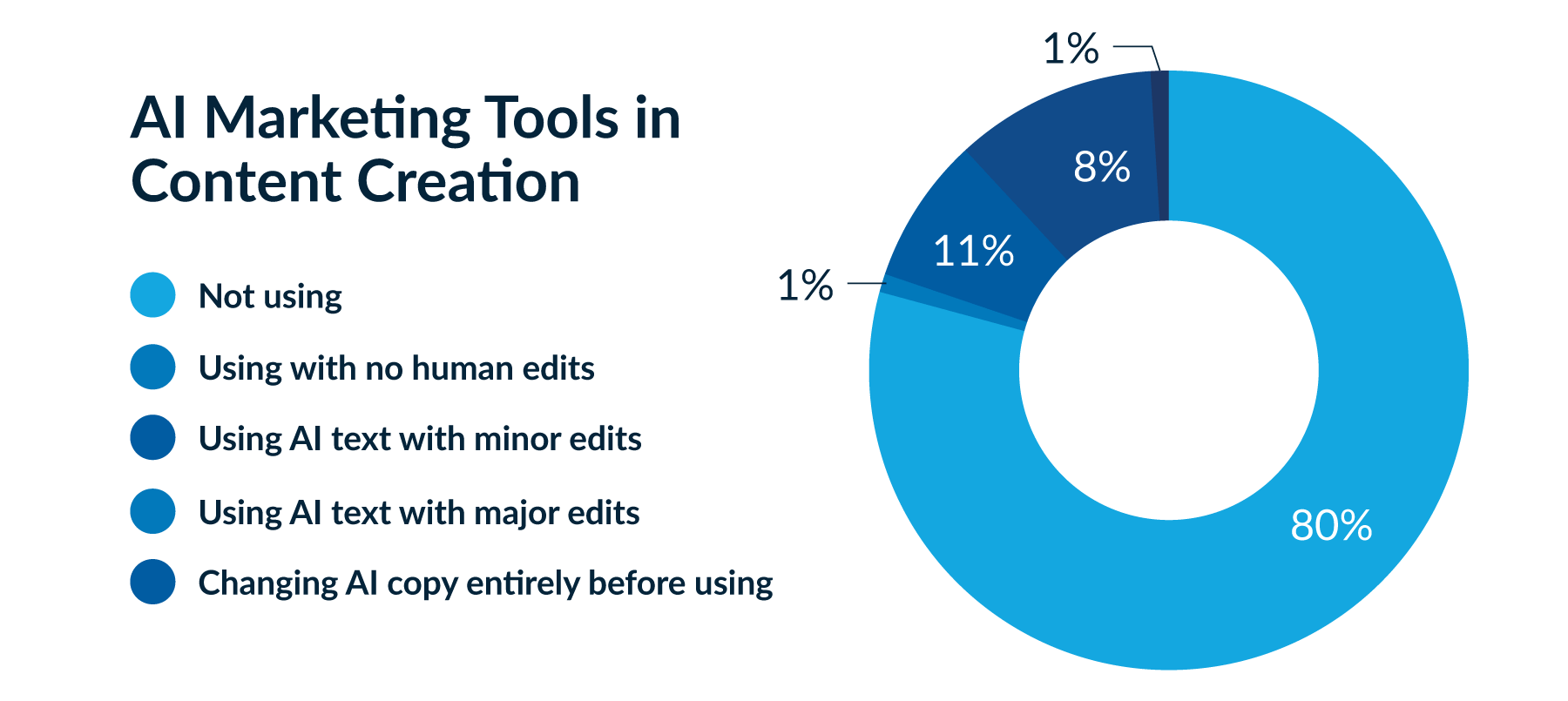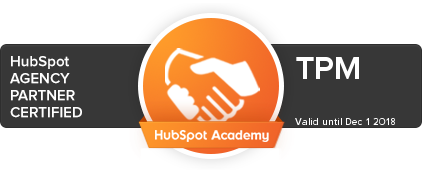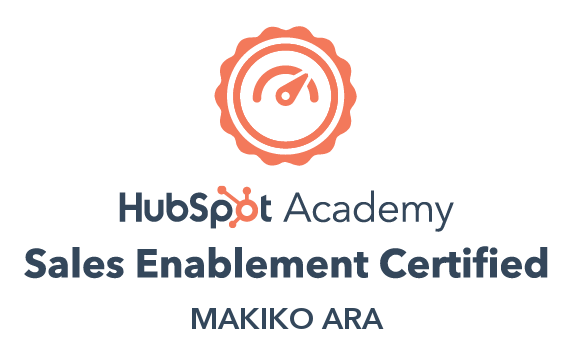How Agencies Are Actually Using AI in Marketing — It’s Not What You Think
- Irene Schouwenaar

Is your marketing team leveraging AI tools? It seems like pretty much everyone is experimenting with AI in marketing these days. But what does that look like, really?
When our team started exploring the idea of using AI in marketing, it felt like a pretty novel concept. But the more we researched and read, the more it seemed we were late to the party. Everyone else was already splashing around in the deep end of the AI pool while we were still on the deck, dipping our toes in the water.
It didn’t make sense. ChatGPT launched for public use in November 2022. How could we possibly be so far behind in developing an AI marketing strategy less than six months later? When were all these other marketing agencies building out their plans? And more importantly, why was no one sharing their crystal ball with us?
Our Robot Overlords Aren’t Here Yet
The news of human marketers’ imminent replacement by artificial intelligence and machine learning has been overblown. Human genius is still vital to producing compelling content — even AI admits it (albeit in a somewhat ominous way). Put another way: AI marketing tools, for now at least, are just tools.
Wunderman Thompson — part of WPP, one of the world’s largest advertising agencies — recently highlighted some of the issues with AI in marketing with this absolutely amazing KitKat ad:
So How Many Agencies Use AI Marketing Tools?
The short answer: pretty much all of them. OK, there’s probably a holdout somewhere that’s still creating every asset from scratch and taking pride in resisting the siren song of automation and machines. There are still authors who produce novels on typewriters. But they’re outliers.
Hard numbers on the use of AI in marketing are hard to pin down.
Why so much variation? The answer lies in the question.
Simply asking if an agency uses artificial intelligence is a pretty broad question. What qualifies as “using AI”? After spending more time than I’d like scouring Google for an answer to that question, it seems none of us have really clarified that.
So is every marketer using Grammarly or a chatbot leveraging AI marketing tools? Technically, yes.

But What About Creating Content?
Don’t get me wrong. I am not, in any way, trying to suggest that marketers aren’t at least experimenting with AI tools. We’re a creative bunch, and I think most of us would agree that tools that let us focus on creation and innovation over boring stuff like analysis and optimization have value.
So let’s go to the experts. Hubspot’s 2023 AI Trends for Marketers report offers a pretty comprehensive breakdown of how we’re using AI in marketing. What does it say?
The 4 Most Common Uses of AI in Marketing
This is how we’ve been putting the robots to work, folks. Drumroll, please!
1. Content creation (48%)
2. Analyzing or reporting on data (45%)
3. Learning how to do things (45%)
4. Conducting research (32%)
AI Marketing Tools in Content Creation
Creating content is a pretty broad category. Using AI for content creation could mean anything. Are we using Jasper to write copy for entire assets for us? Or is Grammarly tightening up our text? Content isn’t just words, either. 44% of marketers told Hubspot they used visual AI tools, like Canva’s AI image generator.
When we dig a little deeper into Hubspot’s data, we find a bit more specific breakdown of how marketers are using AI tools for content creation:
- 20% use it to write copy
- 20% use it to create images
- 18% use it to generate outlines

And because Hubspot is just that cool (or maybe they, too, are really curious to know how many of us just stopped working and handed our campaigns off to algorithms), they went even further and broke down the data for the 20% who said they used AI to write copy.
- 4% publish AI text with no changes
- 53% make minor edits to AI-generated text
- 39% make major edits to AI-generated text
- 5% change AI-generated copy completely before using it
The Future of AI in Marketing
OK, so maybe we’re not behind at all. The fact is, AI has been slowly permeating our workflows for years now, and it’s only recent dramatic jumps in the technology’s progress that’s made us all sit up and take notice.
That said, the speed of its evolution is only accelerating. AI marketing tools will get better, and eventually, we will all use them — why wouldn’t we? What really matters is that we’re all ready to embrace the change as it comes.
At TPM, we’re investing heavily in exploring and evaluating new AI marketing strategies and tools and testing which ones will best serve our clients. Contact us for more information.



